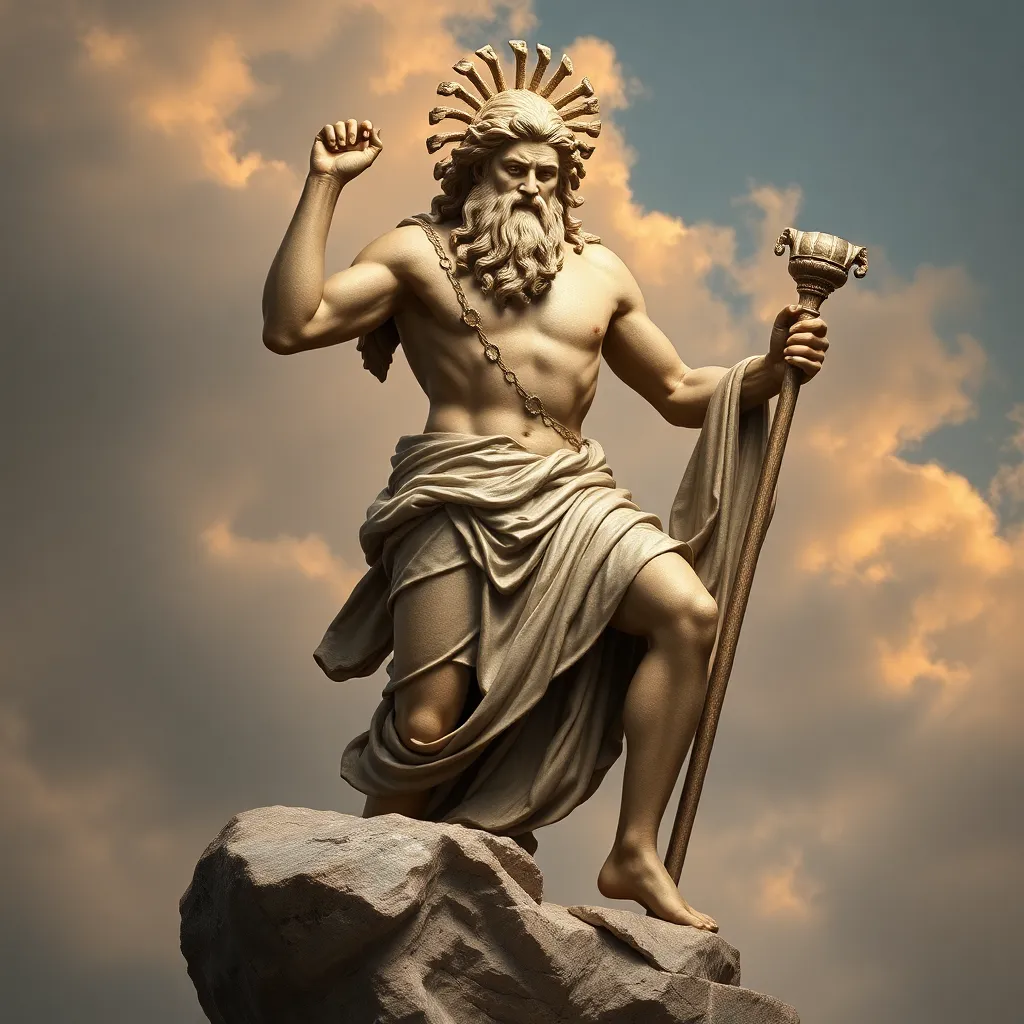The Influence of Heracles on Ancient Greek Philosophy
I. Introduction
Heracles, known as Hercules in Roman mythology, is one of the most celebrated figures in ancient Greek mythology. Renowned for his incredible strength and heroic feats, Heracles embodies the ideals of courage, determination, and resilience. His stories have captured the imagination of generations, making him a pivotal figure in ancient Greek culture.
The importance of Heracles extends beyond mere myth; he serves as a symbol of moral virtue and ethical behavior, influencing various aspects of ancient Greek philosophy. This article aims to explore the profound impact of Heracles on philosophical thought, examining how his character and deeds have shaped discussions on morality, virtue, and the nature of the good life.
II. Heracles as a Moral Archetype
Heracles is often viewed as a moral archetype within Greek mythology. His character traits, such as bravery, perseverance, and a strong sense of justice, make him a compelling figure for philosophical analysis.
- Bravery: Heracles faced numerous challenges that tested his courage, representing the ideal hero who confronts fears and dangers.
- Perseverance: His commitment to completing the Twelve Labors showcases his determination and unwillingness to give up in the face of adversity.
- Justice: Heracles often fought against tyranny and injustice, aligning his actions with the moral values cherished by ancient Greeks.
In Greek philosophy, the concept of heroism is closely tied to the idea of virtue. Philosophers such as Plato and Aristotle have explored the nature of virtue and its role in achieving a good life. Heracles serves as a model for ethical behavior, illustrating how one can strive for virtue through action and resolve.
III. The Labors of Heracles: Symbolism and Philosophical Meaning
The Twelve Labors of Heracles are perhaps the most famous tales associated with him. Each labor presents unique challenges that symbolize various aspects of human existence.
- The Nemean Lion: Represents the struggle against seemingly insurmountable obstacles.
- The Lernaean Hydra: Symbolizes the complexity of problems that multiply when not confronted directly.
- The Ceryneian Hind: Illustrates the pursuit of elusive goals and the importance of patience.
- The Erymanthian Boar: Reflects the necessity of facing one’s fears head-on.
These labors can be interpreted as metaphors for personal struggle, reflecting the philosophical concept of overcoming internal and external challenges. The Stoics, in particular, emphasized the importance of enduring hardship and cultivating virtue through adversity. Heracles embodies the Stoic ideal of pursuing virtue despite the trials one faces, aligning his narrative with the philosophical pursuit of a meaningful life.
IV. Heracles in Platonic Thought
Plato’s dialogues often reference Heracles, using him as a vehicle to discuss deeper philosophical concepts. In works such as the “Republic,” Heracles represents the idea of choice and the moral dilemmas faced by individuals.
- Allegorical Significance: Heracles’ choices between virtue and vice serve as an allegory for the human condition, illustrating the struggle to choose the good life.
- Influence on Platonic Ideals: Heracles’ journey reflects the Platonic ideal of the philosopher-king, who must navigate moral complexities to achieve justice and harmony.
Through Heracles, Plato underscores the importance of making virtuous choices, suggesting that true heroism lies not only in strength but also in wisdom and moral integrity.
V. Heracles and the Concept of Eudaimonia
Eudaimonia, often translated as “flourishing” or “the good life,” is a central concept in ancient Greek philosophy. It refers to the ultimate goal of human existence, achieved through the cultivation of virtue.
Heracles embodies the pursuit of Eudaimonia in several ways:
- His labors are not merely tasks but lessons in virtue, showcasing the importance of moral character in achieving a fulfilling life.
- Heracles’ trials demonstrate the significance of personal growth through adversity, aligning with the philosophical notion that challenges can lead to greater understanding and virtue.
Philosophical interpretations of Heracles’ journey highlight the idea that the path to Eudaimonia is fraught with challenges that require resilience, ethical decision-making, and a commitment to personal growth.
VI. The Heraclean Influence on Later Philosophers
The legacy of Heracles extends beyond the classical period, influencing later philosophers such as Aristotle and the schools of Hellenistic thought.
- Aristotle’s Views: Aristotle admired Heracles as a model of virtuous action, emphasizing the importance of moral character in achieving happiness.
- Hellenistic Philosophy: Both Epicureanism and Stoicism drew on Heracles’ narrative to discuss the nature of pleasure, pain, and the pursuit of virtue in the face of life’s uncertainties.
Heracles serves as a lens through which human nature can be understood, highlighting the complexities of moral choice and the struggle for personal excellence.
VII. Heracles in Rhetoric and Discourse
Heracles has also played a significant role in philosophical rhetoric and discourse. His character is frequently invoked in arguments concerning ethics and morality.
- Philosophical Arguments: Heracles’ feats serve as examples in discussions about heroism, virtue, and the nature of good actions.
- Moral Rhetoric: His narrative is used to illustrate the consequences of choices, emphasizing that true heroism involves moral responsibility.
Through these references, Heracles becomes a cultural touchstone in philosophical texts, representing the ideals of strength and virtue that philosophers sought to instill in their teachings.
VIII. Conclusion
Heracles’ influence on ancient Greek philosophy is profound and multifaceted. As a moral archetype, a symbol of personal struggle, and a model for ethical behavior, he has shaped philosophical discussions on virtue, heroism, and the good life.
His legacy endures in philosophical thought and literature, reminding us of the importance of resilience, moral choices, and the pursuit of Eudaimonia. In contemporary discourse, the relevance of Heracles continues to resonate, inviting reflection on our own journeys toward virtue and fulfillment.




